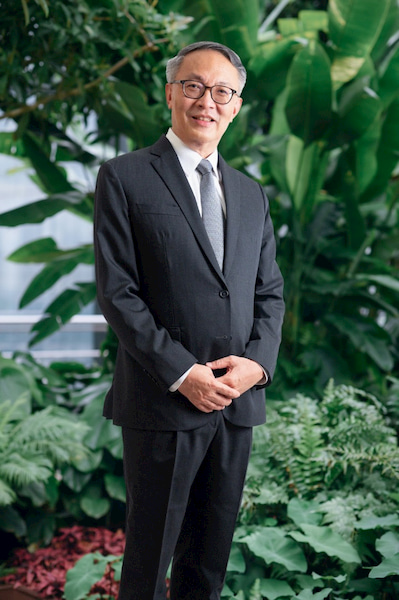Sustainability
Sustainability Approach
Our Vision and Core Values
Vision
Core Values
To always be the premier real estate company in the country.
Result-oriented
Pioneer (Dare to transform & be different)
Innovative (Mindset, Teams, Iconic Design & Construction Methods)
Excellence (Branding, Design, Quality & Customer Relationship)
Integrity
Astaka’s Sustainability Governance
A sustainability governance structure enhances transparency, accountability, and effectiveness in Astaka’s sustainability journey. Astaka has developed a whole-of-organisation approach and actively involves internal stakeholders in its sustainability agenda.
Astaka’s Sustainability Governance Structure
Roles and Responsibilities
Board of Directors
- Sets the overall sustainability direction and provides guidance to the SSC
- Oversees the management of sustainability performance and progress
SSC is Led by CEO, and:
- Reviews sustainability-related processes and policies
- Assesses and manages sustainability matters and performance
- Reviews sustainability initiatives and practices
- Reports material sustainability developments and progress to the Board of Directors yearly
- Develops and implements sustainability initiatives and projects
- Designs sustainability-related processes and policies
- Monitors and maintains records of sustainability-related data
- Prepares annual SR and reports sustainability progress to the SSC yearly
Supply Chain Management
As a socially and environmentally responsible property developer, Astaka endeavours to engage locally-based contractors and suppliers that have a good track record of compliance with local legislations and regulations.
Environmental
- Noise pollution
- Soil pollution
- Water pollution
- Air pollution
- Waste management
- Tree protection
- Mosquito prevention
- Pest control and prevention
- Silt trap protection
- Flood prevention
Social
The Contractor shall take adequate precautions to avoid:
- Injuries
- Property damage
- Open burning
- Theft
The Contractor shall implement necessary measures for:
- Safe and health at site
- Public security
- Traffic control
- Maintenance of public and private road and footpaths
- Site fire prevention
Stakeholder Engagement
Key concerns:
• Business operations
• Business strategy and outlook
Engagement frequency:
Immediate
Engagement means:
• Release of financial results and announcements, press releases and other relevant disclosures through SGXNet and Astaka’s website
• Annual General Meeting
Our responses:
The Group keeps investors informed on significant developments regarding the business. On top of that, the Group has received numerous accolades including the Prestigious Developer Award People’s Choice Awards, reflecting positive perceived value of and confidence in our projects.
Key concerns:
• Health and safety
• Business performance
Engagement frequency:
Occasional
Engagement means:
• Regular meeting with suppliers (e.g. contractors and consultants)
Our responses:
The Group integrates our environmental, social, and governance aspects in our terms of contract which suppliers are required to comply with.
Key concerns:
• Fair remuneration and opportunities
• Career development
• Employee well-being
• Competency and technical training
Engagement frequency:
Immediate
Engagement means:
• Training programmes
• Induction for new employees
• Team building and staff activities
• Yearly performance appraisals
Our responses:
The Group stands firm against any forms of discrimination in our organisation. Our Human Resource (“HR”) team is also in the process of developing a yearly training calendar to address targeted needs of our employees.
Key concerns:
• Community investments
Engagement frequency:
Immediate
Engagement means:
• Contributions to support various philanthropic, community and charitable causes
Our responses:
The Group actively strives to give back to the local community. In FY2020, the Group carried out two Corporate Social Responsibility (“CSR”) events and provided RM$0.16m in donations and sponsorships. Further, Astaka and its suppliers conduct Environmental Impact Assessment (“EIA”) in line with local regulations prior to construction phase to assess potential impacts and implement mitigation measures, as necessary.
Key concerns:
• Compliance with mandatory reporting requirements
Engagement frequency:
Immediate
Engagement means:
• Ongoing communication and consultation
• Training and updates of latest changes in laws, regulations and accounting reporting standards
Our responses:
Astaka strives to be in compliance with all applicable local laws and regulations in its operations. There were no substantiated cases of incidents in FY2024.
Sustainability Commitment
Alignment with SDGs
Good Health and Well-being
As a property developer, Astaka has a strong culture for ensuring the good health and well-being of our employees and contracted workers. We also consider the health and well-being of the local communities.
Gender Equality
Astaka actively promotes gender equality and diversity in the workplace. We believe that gender equality improves the productivity of our employees and helps build up a decent working place.
Decent Work and Economic Growth
Since the inception of Astaka, we provide competitive and merit-based employment opportunities to our talent and aim to promote sustained economic growth in our operating regions.
Decent Work and Economic Growth
Since the inception of Astaka, we provide competitive and merit-based employment opportunities to our talent and aim to promote sustained economic growth in our operating regions.
Industry, Innovation and Infrastructure
Astaka promotes and endeavours to develop quality, reliable, sustainable and resilient residential, commercial, and office buildings.
Industry, Innovation and Infrastructure
Astaka promotes and endeavours to develop quality, reliable, sustainable and resilient residential, commercial, and office buildings.
Sustainable Cities and Communities
With a vision to transform Johor Bahru in Malaysia, Astaka’s projects provide smart and integrated urban solutions, bringing amenities such as hotel, residences, apartments, shopping malls, private hospital and school in a single district.
Responsible Consumption and Production
Throughout its value chain, Astaka makes considerations regarding responsible consumption and production. Astaka only engages contractors who meet our socio-environmental criteria and minimise negative socio-environmental impacts.
Our Sustainability Policy
The Group aspires to become the advocate of sustainable developments. We have dedicated resources in our aim to achieve:
Sustainable performance and operations
- To explore opportunities to implement design and technological solutions in all new developments and corporate operations, that are beneficial to the environment and communities while allowing us to deliver enhanced performance.
- To also cultivate a sustainability-centric culture within our company by spreading awareness and educating our employees through various communication channels.
- To comply with all applicable environmental and socio-economic regulations applicable to the Group.
Strong relationships with our key stakeholders
- To continuously engage and protect the well-being of our employees, contracted suppliers and their workers with the provision of relevant training, benefits, as well as the enforcement of key health and safety measures.
- To build a relationship and provide an avenue to understand concerns of the local community and contribute in ways possible.
Our Sustainability Targets
Material ESG Matter for Reporting
FY2021 Target(s) or Commitment Statements
Economic Performance
We are committed to work closely with our consultants to improve key performance indicators while incorporating sustainable design solutions and technology in all new developments.
Training and Education
Average training hours of 12 hours per employee.
Local communities
2 CSR programmes to be organised.
Energy Management
All future developments of Astaka’s to be Green Building Index certified; and or where this is not possible, to achieve a minimum of three green initiatives per development.
Compliance
- Zero cases of socio-economic and environmental non-compliance.
- Develop and adopt a group-wide anti-corruption policy.
Economic
Economic Performance
Economic performance is an important aspect for Astaka. We work closely with our consultants to gather knowledge, plan and implement design solutions and invest in technologies that are effective in driving key performance indicator improvements, while striving to achieve positive environmental impacts through more sustainable-centric developments and operations.
We recognise that the way we operate our business has both direct and indirect impacts on various stakeholders. At Astaka, for instance, we empower livelihood through employment, provide opportunities for suppliers and contribute to the communities where we operate.
The Group has dedicated resources to kick start the planned commercial developments (Phase 3) of One Bukit Senyum as well as explore strategic alliances to develop the area which spans across approximately 7.65 acres.
Environment

Energy Management
Astaka firmly believes that climate change is a global challenge and we seek to do our part by investing in effective energy conservation initiatives and technologies. Energy-saving LED lighting are installed at our corporate office, sales galleries, and at the common areas of The Astaka @ One Bukit Senyum. Going forward, the Group aims to roll out more green initiatives for future new developments to further improve our carbon footprint.
Social
Our People
Our employees are our greatest asset and one we strongly value as a Group. At Astaka, we are committed to uphold fair employment practices and strive to maintain a consistent percentage of permanent employees hired by the Group yearly.
Training and Education
Recognising that our employees are key attributes to the continuous growth and success of our business, their competencies and professional development are important to the Group. We have taken steps necessary to build a foundation for our employees’ development and to inculcate a growth mindset in order to perform their role and stretch their existing abilities.
Our training framework established this year, comprises a 3-tiered approach designed to cater towards all levels of employees in the Group. A yearly training calendar with a minimum of 12 hours of training programmes or workshops are expected to be organised annually and distributed between department, inter-department and group-wide training segments.
With that, the Group aims to address both specialised as well as general knowledge and skillsets relevant to each department and those required of inter-departments to work harmoniously together to create quality developments. Additionally, with full support from the Group, employees are encouraged to provide recommendations for programmes or topics that may be beneficial as firm-wide trainings. Training programmes may be carried out either by internal Head of Departments (HoDs) or by external accredited consultants.
At Astaka, we are committed to ensuring that our employees receive the training they need to excel at their jobs. Our HR team will maintain training records and track hours for analysis and reporting in the next SR.
Local Communities
Astaka is committed to empowering the local communities in our operating regions. We support local communities by addressing their specific needs and participating in local charity programmes. Our donations and sponsorships focus on education, sports events and well-being of the underprivileged. With the goal to transform the communal life and build a brand-new residential experience in Johor, we also ensure that negative environmental and social impacts are avoided or minimised during the transformation.
Tunku Laksamana Johor Tunku Abdul Jalil Mosque
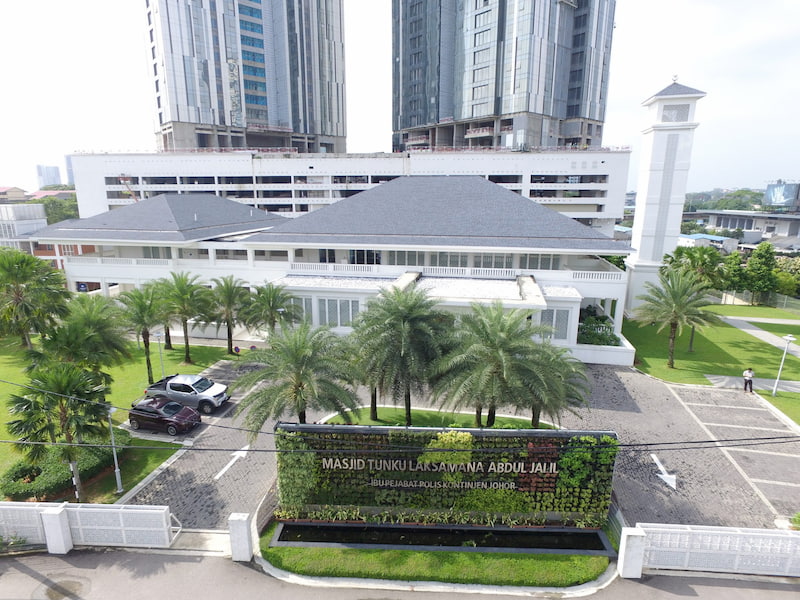

Having recognised that a majority of the population in our local communities are Muslim, Astaka built the Tunku Laksamana Johor Tunku Abdul Jalil Mosque voluntarily to support the local communities’ religious activities. The 3-storey modern mosque is located within the compound of the Royal Malaysia Police Johor Contingent Police Headquarters. The construction of the mosque started in 2012 and was completed in 2015. With a maximum capacity of 1,500 worshippers, the new mosque is considered as a significant upgrade from the old one that could only host up to 600 worshippers. Open to the public, the mosque brought convenience and enhanced social gatherings to at least 2,500 people in the local community.
Astaka Holdings Ltd. Food Bank Programme 2020
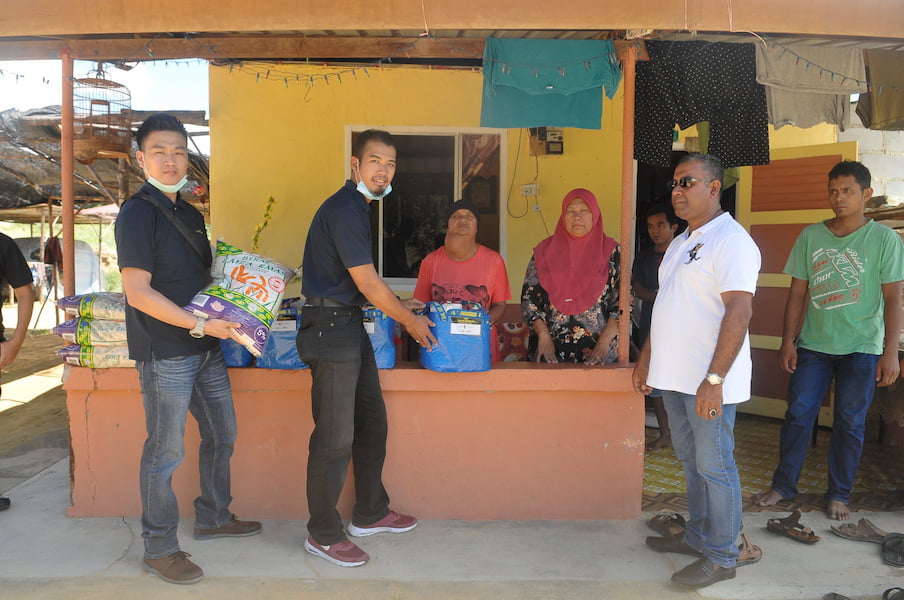
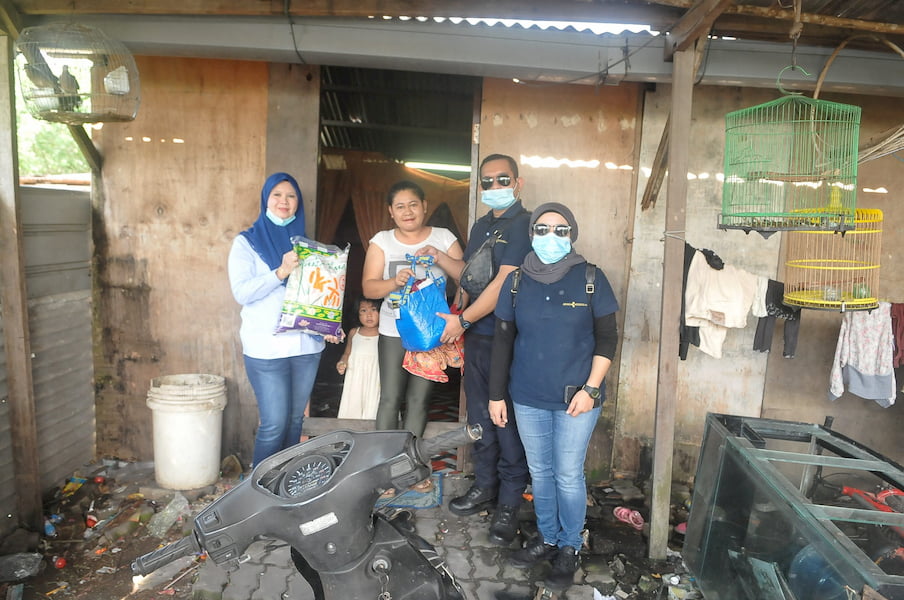
Food security is a pressing issue for many during the COVID-19 pandemic, especially for the underprivileged community members. To support local communities in the villages surrounding the Bukit Pelali @ Pengerang project and One Bukit Senyum project, Astaka organised a food bank programme to distribute food aid on 19 July 2020 and 23 July 2020. We contacted the Head of Village and he helped identify the poor, single mothers, disabled people, and the unemployed as the key beneficiaries. Employees from Astaka visited every targeted household and showed our care. In total, we distributed 1,500 kg rice and 150 bags of food supplies containing cooking oil, condiments, instant noodles etc. to 150 households.
Astaka Holdings Ltd. Bowling Tournament


Children engineer the future of our nation and our world. As a socially responsible property developer, Astaka is fully aware of the importance to create a happy living environment for children of all ages and all backgrounds. On 28 September 2019, Astaka held a bowling tournament with children from local orphanages. 10 teams of employees from Astaka and 4 teams of children participated in the games. Through the tournament, we aimed to bring some joy to the children and enrich their weekend life. The awards and cash prizes from the tournament were all donated to the orphanage and used to improve the children’s well-being.
Occupational Health and Safety
Safeguarding the health and safety of our employees and other workers at our sites is one of the top priorities of Astaka. We are fully aware of the health implications in our sector. The Group has thus introduced multi-layer measures to protect our people’s well-being.
Firstly, we work towards establishing a safe working environment culture by learning from best practices in existing national and international Occupational Health and Safety (OHS) management systems. Secondly, we require all our contractors to follow the guidelines from the Department of Occupational Safety & Health (DOSH) and comply with the requirements listed in OHS management systems such as OHSAS 18001. During the construction phase, Astaka’s contractors need to publish monthly safety and health reports which cover diverse health and safety aspects such as policies, performance, compliance, and training. Astaka and its consultants frequently review these reports to ensure that the contractors duly inspect the workplace health and safety weekly, take corrective actions against non-compliance immediately, and prepare the workers physically and mentally for work.
At Astaka, we promote employees’ health by organising physically active events such as badminton sessions.

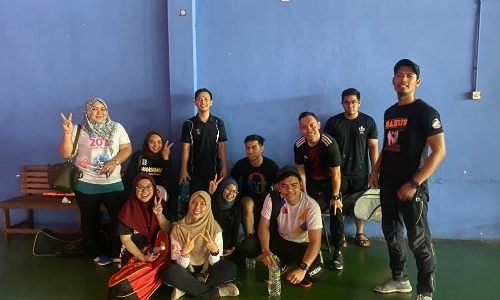

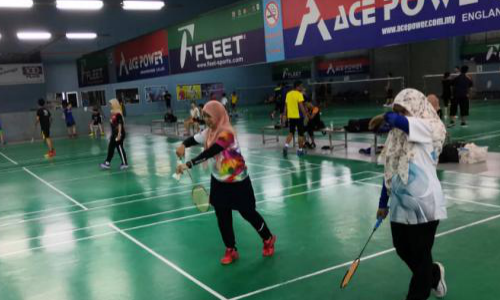
Governance
Compliance
Astaka firmly believes that compliance with laws and regulations is the foundation of our company’s long-term success. By adhering to socio-economic and environmental laws and regulations, we also ensure that our business contribute to Malaysia’s goal of building a clean and prosperous society. At Astaka, we also have zero tolerance towards corruption, fraud, or other unethical conduct. Below are the major laws and regulations that Astaka needs to comply with:
Major Laws and Regulations
Compliance Objectives
Housing Development (Control and Licensing) Act 1996
To ensure Astaka has the license to operate in Malaysia.
Environmental Quality Act 1974
To minimise the environmental impacts from our projects.
Local Government Act 1976
To comply with local regulations.
Fire Services Act 1988
To manage fire risks and hazards effectively.
Solid Waste and Public Cleansing Management Act 2007
To maintain proper sanitation and public cleansing.
Strata Titles Act
To be eligible to sell our properties to interested parties.
Catalist Rules
To comply with the Catalist Rules and safeguard the shareholders’ interests.
Major Laws and Regulations
Compliance Objectives
Housing Development (Control and Licensing) Act 1996
To ensure Astaka has the license to operate in Malaysia.
Environmental Quality Act 1974
To minimise the environmental impacts from our projects.
Local Government Act 1976
To comply with local regulations.
Fire Services Act 1988
To manage fire risks and hazards effectively.
Solid Waste and Public Cleansing Management Act 2007
To maintain proper sanitation and public cleansing.
Strata Titles Act
To be eligible to sell our properties to interested parties.
Catalist Rules
To comply with the Catalist Rules and safeguard the shareholders’ interests.
To effectively fulfil our legal responsibilities, Astaka introduces and adopts a four-dimensional management approach:


